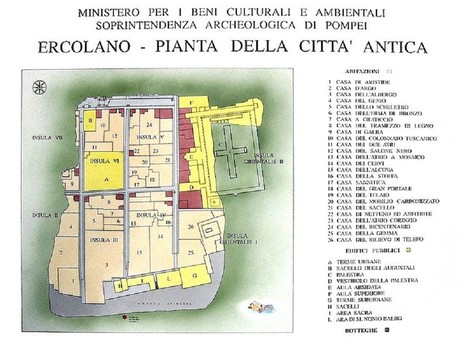One of the greatest natural disasters to occur in the ancient world was the eruption of Mount Vesuvius in the year 79 A.D. The eruption buried the city of Pompeii in ash, preserving the Roman town for almost 2,000 years before it was unearthed for the edification of archeologists and tourists. The nearby city of Herculaneum was flash burned by volcanic gas. An entire library of what is presumed to be works by ancient philosopher was turned to charred papyrus, unreadable and untouchable. That situation may change according to a Tuesday article by AFP.
Researchers at the Institute for Microelectronics and Microsystems (IMM) in Naples are working on a method to read the charred scrolls noninvasively. Previous attempts, to read the scrolls, have resulted in the destruction of the fragile material and were abandoned a long time ago. The new method uses an X-ray phase-contrast tomography — a scanner also used in medicine to image soft tissue. Different materials, such as ink, absorb X-rays differently. Thus far experiments using the scanner, along with a computer algorithm to process the signals and bring out the contrast between the ink and the material have proved promising.
In order to start reading these ancient texts, the researchers are going to need two things. They will need a more refined scanner with which to work, and they will need funding. Thus far they have been working on a volunteer basis.
One of the great tragedies of history has been how much Roman and Greek literature was lost during the fall of the Roman Empire. What survived is but a small fraction of what existed during the time of the Caesars. One cannot but eagerly await what new works might be extracted from these First-century books using 21st Century technology.















